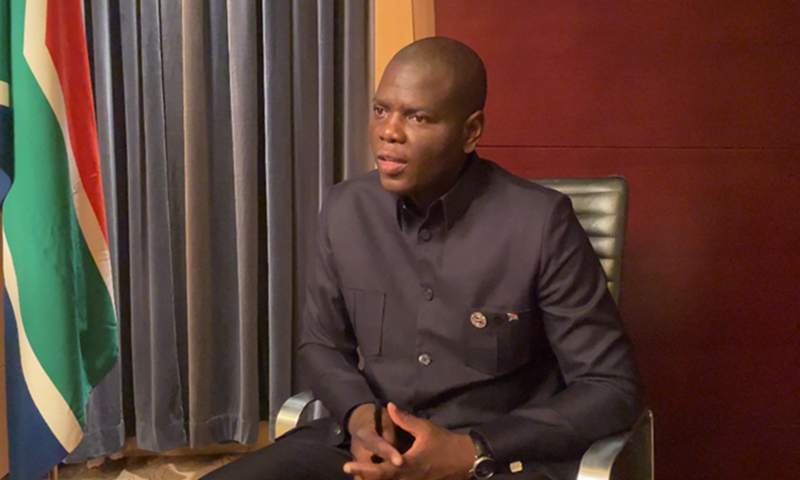The 2024 Summit of the Forum on China-Africa Cooperation (FOCAC) ran from September 4 to 6 in Beijing, the largest diplomatic event hosted by China in recent years, with the highest attendance of foreign leaders. In a recent exclusive interview with the Global Times, South African Minister of International Relations and Cooperation Ronald Lamola said he believes China and Africa will take this forum as an opportunity to carry out more practical cooperation, promote solidarity and boost the modernization of the Global South.
As for China-South Africa relations, Lamola believes the two countries are at a “golden era,” as manifested during South African President Cyril Ramaphosa’s recent visit to Beijing, when the two sides upgraded their relationship into an all-round strategic cooperative partnership in the new era.
“This is a clear indication of the deep trust between the two nations,” Lamola said.
“The collaboration [with China] is groundbreaking, and is transforming the economic landscape in our country,” the foreign minister said, noting that China is South Africa’s largest trading partner, and South Africa is China’s largest trading partner on the African continent.
Lamola emphasized that China has opened its market to South African products such as avocados and beef, and Chinese investment has created thousands of jobs annually in South Africa.
“South Africa is looking forward to increasing value addition in its economy, particularly in the cooperation on electric vehicles, clean technology, and green energy with China,” the South African top diplomat said.
China and South Africa have in recent years explored a variety of new areas of collaboration. Lamola hailed the two sides’ people-to-people exchanges, with a significant number of South African students coming to China to attend Chinese universities, while others for vocational training to learn skills related to digital economy among others. These talents will have an immense positive influence on the future development of his country, Lamola noted.
There is also significant potential for cooperation in areas such as artificial intelligence, digital economy, green economy, and the management of harbors across various parts of South Africa, he said.
The African Continental Free Trade Area (AfCFTA), the world’s largest free-trade area, started trading on 1 January 2021, which has by then witnessed the steady advancement of economic integration of the continent. China and Africa’s cooperation in infrastructure is also contributing to the development of the AfCFTA, by facilitating the smooth movement of goods within and beyond borders, acting as a key economic enabler, the foreign minister said.
Lamola expressed interest in learning from China’s successful modernization experience. “It’s a good lesson for us to move our own people out of poverty and to be able to prosper, which is one of the cooperation agreements that we’ve signed with China, to land that experience so that we can alleviate poverty and to accelerate our own pace of modernization,” he said.
Speaking of his view on a fair and just international order, Lamola told the Global Times that “multilateralism is the cornerstone of the world where world powers coexist in a peaceful way and cooperate, allowing diversity and also other countries to emerge.” As China and South Africa are both key members of the Global South, the two sides should join hand and continue to promote the development of the international order and global governance in a fairer and more just direction, he said.
The more complex the international situation, the more the countries of the Global South need to adhere to independence and autonomy, unite and cooperate, and jointly uphold international fairness and justice. Lamola stated that South Africa will continue to engage in global platforms like the United Nations, the African Union and FOCAC to support the modernization of the Global South in alignment with their national conditions.
“We are glad that the role of China in our country has been one of non-interference with our domestic politics, and the work that we engaged with China is mutually beneficial,” noted Lamola.
GT




